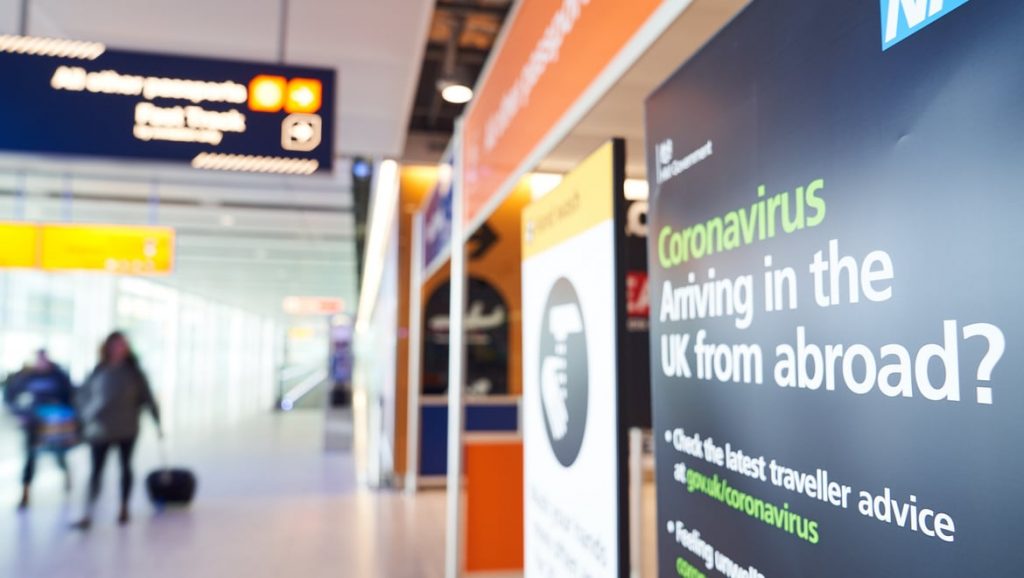
The UK has officially released its ‘green list’ as the country is set to resume restriction-free international travel from 17 May – for 12 countries.
A vast majority of the world remains on the UK’s ‘amber’ or ‘red’ lists, which, under the UK’s traffic light system, require travellers to spend 10 days in either self-isolation or hotel quarantine, respectively.
All travellers, regardless of ‘green’, ‘amber’ or ‘red’ status, will be required to fill out a passenger locator declaration form, as well as present a negative PCR COVID test before they fly to the UK.
Notably, top tourist and airline revenue-driving destinations – such as Spain, France, Italy and the United States – have all fallen on the ‘amber’ list, which means travellers will need to self-isolate for up to 10 days.
These travellers can perform a ‘test to release’ PCR test on day 5 after entering the UK, and may then leave isolation should they receive a negative result.
Meanwhile, Turkey, another tourist spot, was placed on the ‘red’ list, which will see anyone entering the UK required to spend 10 days in hotel quarantine at their own cost.
The 12 countries that made it to the UK’s green list, which doesn’t require any self-isolation or quarantine, include Australia, New Zealand, Portugal, Israel, Singapore, Brunei, Iceland, Gibraltar, Falkland Islands, Faroe Islands, South Georgia and the South Sandwich Islands and St Helena, Tristan de Cunha, Ascension Island.
However, many of the included countries have their own strict rules on who can enter and leave the country.
Britons travelling from the UK to any of the destinations on the ‘green’ list will be required to take two COVID-19 tests, one before arrival back into the UK and one within two days of returning.
While the legal ban on all non-essential travel internationally will be lifted from 17 May, the UK government has advised Britons against travelling to countries on the amber or red lists for the purposes of leisure and holidaymaking.
“Today marks the first step in our cautious return to international travel, with measures designed above all else to protect public health and ensure we don’t throw away the hard-fought gains we’ve all strived to earn this year,” UK transport minister Grant Shapps said.
However, just hours before the traffic light list was announced, UK flag carrier British Airways’ parent company IAG urged the UK government to consider widespread unrestricted “travel corridors” between popular destinations in Europe and the US.
“We’re absolutely confident that a safe restart to travel can happen as shown by the scientific data,” said Luis Gallego, IAG chief executive.
IAG said its airlines, including BA, Aer Lingus, Iberia and Vueling, are “ready to fly”, and anticipate a “high level” of pent-up demand for leisure travel.
Last week, World of Aviation reported that, despite the current state of the ‘green list’, government insiders suggest that popular European tourist hotspots, such as Spain, Greece and France, will be open to British holidaymakers before the end of the summer.
A report by The Telegraph suggested at the time that while the initial list of countries that will make it to Britain’s ‘green list’ prior to 17 May is expected to be small, the list will be revised every three weeks, with much of Europe expected to make the cut for the ‘green list’ by the end of June.
“It’s a rolling, evolving list that is going to start off cautiously but could start to change quickly. It is not like a one-off list that affects the totality of the summer. It will update and other countries will be added,” the source said.
Meanwhile, UK Prime Minister Boris Johnson stuck to his guns by insinuating that very little accommodation for European summer travel will be made upon the release of the ‘traffic light’ list.
PM Johnson stated that the initial “green list” will remain small, so as to avoid an excessive “influx of disease” off the back of tourism.
“We do want to do some opening up on May 17, but I don’t think that the people of this country want to see an influx of disease from anywhere else,” the UK PM said.
“I certainly don’t – and we have got to be very, very tough, and we have got to be as cautious as we can, while we continue to open up.”




